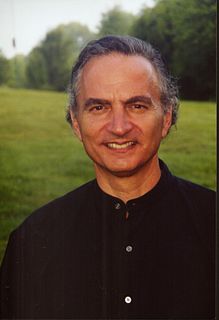A Quote by Charles Lamb
The most mortifying infirmity in human nature, to feel in ourselves, or to contemplate in another, is perhaps cowardice.
Related Quotes
When you look upon another human being and feel great love toward them, or when you contemplate beauty in nature and something within you responds deeply to it, close your eyes for a moment and feel the essence of that love or that beauty within you, inseparable from who you are, your true nature. The outer form is a temporary reflection of what you are within, in your essence. That is why love and beauty can never leave you, although all outer forms will.
We could say that the human race is a great coauthorship in which we are collaborating with God and nature in the making of ourselves and one another. From this there is no escape. We may collaborate either well or poorly or we may refuse to collaborate, but even to refuse to collaborate is to exert an influence and to affect the quality of the product. This is only a way of saying that by ourselves we have no meaning and no dignity; by ourselves we are outside the human definition, outside our identity.
We have made men proud of most vices, but not of cowardice. Whenever we have almost succeeded in doing so, God permits a war or an earthquake or some other calamity, and at once courage becomes so obviously lovely and important even in human eyes that all our work is undone, and there is still at least one vice of which they feel genuine shame. The danger of inducing cowardice in our patients, therefore, is lest we produce real self-knowledge and self-loathing, with consequent repentance and humility.
We feel the urge to tell the truth as we see it. But we should try to accomplish this without judgemental condemnations that hurt others. Again, when we remember that what we perceive in another is a reflection of ourselves, we become less judgemental. So when we freely express harsh judgement of another, we are in effect talking about those aspects of ourselves that trouble us the most.
Spirituality emerged as a fundamental guidepost in Wholeheartedness. Not religiosity but the deeply held belief that we are inextricably connected to one another by a force greater than ourselves--a force grounded in love and compassion. For some of us that's God, for others it's nature, art, or even human soulfulness. I believe that owning our worthiness is the act of acknowledging that we are sacred. Perhaps embracing vulnerability and overcoming numbing is ultimately about the care and feeding of our spirits.




































